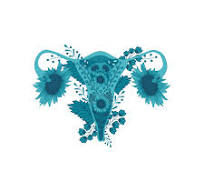Understanding PCOS: What You Need to Know
- Sep 4, 2025
- 3 min read
September is PCOS Awareness Month 💜
We all know that one friend who spends days curled up in bed, doubled over in pain every month. Sometimes that friend is our sister, our mother, or even ourselves.
For me, it was my mother. As a young girl, just beginning to understand what periods were, I watched her suffer. She would be bedridden for days, going through pads the way you go through tissues when you have the flu. I didn’t understand why it had to be so hard — until much later, when she was finally diagnosed with cystic fibroids. By then, she had already endured years of pain.
Years later, my daughter started her period at just 10 years old. The first two days of each cycle meant missed school and unbearable cramps. As a mother, it broke my heart. We sought help, and with guidance from Jess (@the_fertility_nutritionist), small diet changes made her pain more manageable. But I quickly learned that not everyone’s story ends with such simple solutions.
That’s when I came across a condition with a name many of us don’t hear enough: PCOS.

What is PCOS?
Polycystic Ovary Syndrome (PCOS) is one of the most common hormonal conditions, affecting 1 in 10 women of reproductive age — yet it’s often misunderstood, overlooked, or dismissed.
In PCOS, the ovaries don’t always work the way they should. Instead of releasing eggs regularly, hormones get out of balance, which can cause irregular or missed periods. On top of that, higher levels of androgens (hormones everyone has, but usually in smaller amounts in women) and insulin resistance make symptoms vary widely.
And despite the name, not everyone with PCOS has cysts on their ovaries.

Signs & Symptoms
PCOS doesn’t look the same for everyone, but some common signs include:
Irregular or heavy periods
Excess hair growth on the face or body
Acne or oily skin
Thinning hair on the scalp
Weight gain or difficulty losing weight
Fertility challenges
Darkened patches of skin, often on the neck or underarms
Health Risks Linked to PCOS
Beyond reproductive health, PCOS can affect overall well-being. People with PCOS have a higher risk of developing:
Type 2 diabetes or prediabetes
High blood pressure and heart disease
Sleep apnea
Mental health struggles like anxiety or depression
That’s why early diagnosis and support are so important.
How to Manage PCOS
There’s no cure for PCOS, but there are ways to manage it. Every person’s journey looks different, but common approaches include:
Lifestyle changes – balanced diet, regular exercise, and stress management can improve symptoms and insulin resistance
Medications – such as hormonal birth control to regulate periods, or medications to manage insulin resistance
Fertility support – treatments like ovulation-inducing medications may help if pregnancy is the goal
Working with a healthcare provider can help create a personalized plan.
Why Awareness Matters
Too many people live with PCOS for years before they’re diagnosed — blaming themselves, feeling isolated, or thinking it’s “just bad periods.” Awareness helps us change that. It sparks conversations, reduces stigma, and empowers more women and girls to seek the support they
deserve.
At Liberty Underwear, we believe no one should suffer in silence. That’s why we have designed ultra-absorbent period pants — to give comfort, confidence, and freedom on days when your body feels anything but great. Because whether you are navigating PCOS, heavy flows, or just the unpredictability of periods, you deserve to live without fear of leaks or discomfort.


